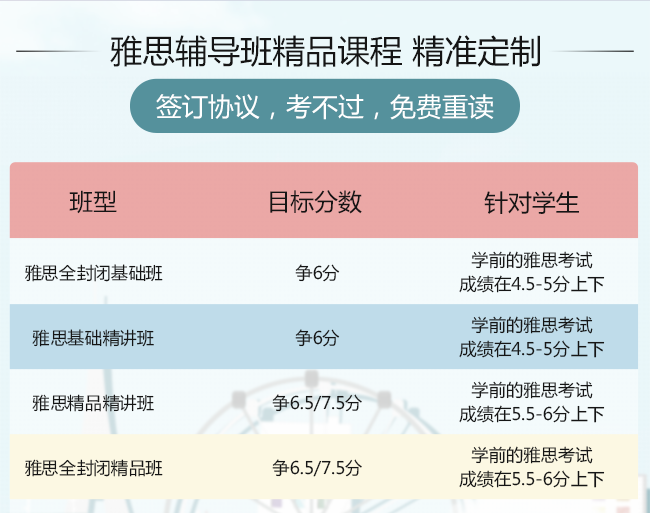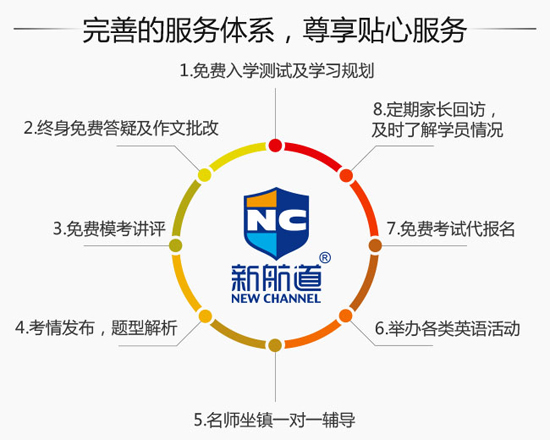摘要:Optimists say that decarbonisation is within reach. Yet, even allowing for the familiar complexities of agreeing on and enforcing global targets, it is proving extraordinarily difficult.(乐观主义者们认为脱碳计划是行得通的。然而,即使考虑到了在全球性目标上取得共识及实施上的常见困难,这个计划还是异常困难。)
In the line of fire(part two)
摘自The Economist August 4th 2018
Optimists say that decarbonisation is within reach. Yet, even allowing for the familiar complexities of agreeing on and enforcing global targets, it is proving extraordinarily difficult.
(乐观主义者们认为脱碳计划是行得通的。然而,即使考虑到了在全球性目标上取得共识及实施上的常见困难,这个计划还是异常困难。)
One reason is soaring energy demand, especially in developing Asia. In 2006-16, as Asia’s emerging economies forged ahead, their energy consumption rose by 40%. The use of coal, easily the dirtiest fossil fuel, grew at an annual rate of 3.1%. Use of cleaner natural gas grew by 5.2% and of oil by 2.9%. Fossil fuels are easier to hook up to today’s grids than renewables that depend on the sun shining and the wind blowing. Even as green fund managers threaten to pull back from oil companies, state-owned behemoths in the Middle East and Russia see Asian demand as a compelling reason to invest.
(原因之一是飙升的能源需求,特别是在发展中的亚洲国家。2006年到2016年期间,随着亚洲新兴经济体向前发展,这些国家的能源消耗增长了40%。煤炭的使用,无疑是污染最重的化石燃料,以每年3%的速率增长。相对清洁的天然气以及石油的使用增长率分别为5.2%以及2.9%。比起那些依赖阳光以及风力的可再生能源,化石燃料与当今的电缆设施更容易建立互联。即使在绿色能源基金的管理者们威胁着要从石油公司撤资,中东以及俄罗斯的国有大公司们还是因为亚洲(旺盛的)需求而继续投资。)
The second reason is economic and political inertia. The more fossil fuels a country consumes, the harder it is to wean itself off them. Powerful lobbies, and the voters who back them, entrench coal in the energy mix. Reshaping existing ways of doing things can take years. In 2017 Britain enjoyed its first coal-free day since igniting the Industrial Revolution in the 1800s. Coal generates not merely 80% of India’s electricity, but also underpins the economies of some of its poorest states. Panjandrums in Delhi are not keen to countenance the end of coal, lest that cripple the banking system, which lent it too much money, and the railways, which depend on it.
(原因之二是经济及政治的“惯性”。一个国家消耗的石化燃料越多,就越难摆脱对其的依赖。强大的说客团加上支持它们的选民们巩固着煤炭在能源中的地位。彻底改变现行的做法可能要花几年时间。2017年英国享有了自1800世纪工业革命以来的个“无煤日”。煤炭不仅为印度提供80%的发电量,还支撑了该国最穷的几个州的经济。德里市的官员们并不想终结煤炭业,生怕损害银行系统以及铁路系统—前者为煤炭业提供大量借贷,而后者则依赖煤炭行业。)
Last is the technical challenge of stripping carbon out of industries beyond power generation. Steel, cement, farming, transport and other forms of economic activity account for over half of global carbon emissions. They are technically harder to clean up than power generation and are protected by vested industrial interests. Successes can turn out to be illusory. Because China’s 1m-plus electric cars draw their oomph from an electricity grid that draws two-thirds of its power from coal, they produce more carbon dioxide than some fuel-efficient petrol-driven models. Meanwhile, scrubbing CO2 from the atmosphere, which climate models imply is needed on a vast scale to meet the Paris target, attracts even less attention.
(最后一个原因是将煤炭从发电业之外其他行业的技术难度。钢铁,水泥,农业,交通以及其他形式的经济活动占了全球碳排放的一半以上。这些行业技术上比发电业更难清理,并且被既得利益集团保护者。成功也许终是幻影。因为中国一百多万辆的电动汽车是从三分之二电力都来自煤炭的电网获取电力的,所以这些电车产出的二氧化碳比某些节能型汽油型汽车更多。与此同时,将二氧化碳从大气层中移除-- 这项工程需要大规模实行才能实现巴黎协定上的目标—就更没什么人关注了。)
The world is not short of ideas to realise the Paris goal. Around 70 countries or regions, responsible for one-fifth of all emissions, now price carbon. Technologists beaver away on sturdier grids, zero-carbon steel, even carbon-negative cement, whose production absorbs more CO2 than it releases. All these efforts and more—including research into “solar geoengineering” to reflect sunlight back into space—should be redoubled.
(在实现巴黎协定目标方面,世界上并不缺乏创意。占碳排放五分之一的约70多个国家及地区目前已经对碳排放标价了。技术派们在辛苦地研究更结实的电网,零碳钢,甚至是“负碳”混凝土(也即生产这种混凝土所释放的二氧化碳不如吸收的二氧化碳多)。所有的这些以及更多的努力-包括对于太阳能地球工程将阳光反射回大气的研究-都应该再多一些。)
Yet none of these fixes will come to much unless climate listlessness is tackled head on. Western countries grew wealthy on a carbon-heavy diet of industrial development. They must honour their commitment in the Paris agreement to help poorer places both adapt to a warmer Earth and also abate future emissions without sacrificing the growth needed to leave poverty behind.
(然而,除非人们修正对气候问题的漠然态度,不然这些修复方案都不会有很大效果。西方国家靠着重度依赖煤炭的工业发展模式致富了。它们必须要兑现在巴黎协定上帮助穷国的承诺—既要适应地球变暖,同时还要在不牺牲为脱贫所必要的经济增长的前提下减少未来的碳排放。)
Averting climate change will come at a short-term financial cost—although the shift from carbon may eventually enrich the economy, as the move to carbon-burning cars, lorries and electricity did in the 20th century. Politicians have an essential role to play in making the case for reform and in ensuring that the most vulnerable do not bear the brunt of the change. Perhaps global warming will help them fire up the collective will. Sadly, the world looks poised to get a lot hotter first.
(正如20世纪世界转向碳排放的汽车,卡车以及电力行业一样,从碳依存转移出来也许最终使经济更好,但是防止气候变化会有短期的经济损失。政客们在坚持改革以及确保最弱势群体不要受改革冲击方面要发挥应有的作用。或许全球变暖可以帮助他们达成共同意愿。但不幸的是,世界可能会先变得(比之前)热得多。)
上海新航道专注雅思教育14年,每120分钟就有一位高分学员来自新航道,加入新航道,实现高分梦!



免费领取最新剑桥雅思、TPO、SAT真题、百人留学备考群,名师答疑,助教监督,分享最新资讯,领取独家资料。
方法1:扫码添加新航道老师

微信号:shnc_2018
方法2:留下表单信息,老师会及时与您联系
| 课程名称 | 班级人数 | 课时 | 学费 | 报名 |
|---|---|---|---|---|
| 雅思预备课程6-10人 | 6-10人 | 80 | ¥13800 | 在线咨询 |
| 雅思入门段6-10人班 | 6-10人 | 80课时 | ¥18800 | 在线咨询 |
| 雅思强化段 6-10人班 | 6-10人 | 72课时 | ¥26800 | 在线咨询 |
| 雅思全程段 6-10人班 | 6-10人 | 192课时 | ¥45800 | 在线咨询 |
| 雅思精讲段6-10人班 | 6-10人 | 96课时 | ¥25800 | 在线咨询 |
| 课程名称 | 班级人数 | 课时 | 学费 | 报名 |
|---|---|---|---|---|
| 雅思强化段 20-30人班 | 20-30人 | 96课时 | ¥8800 | 在线咨询 |
| 雅思精讲段20-30人班 | 20-30人 | 96课时 | ¥7800 | 在线咨询 |
| 雅思全程段 20-30人班 | 20-30人 | 192课时 | ¥13800 | 在线咨询 |
| 课程名称 | 班级人数 | 课时 | 学费 | 报名 |
|---|---|---|---|---|
| 雅思预备课程6-10人 | 6-10人 | 126 | ¥15800 | 在线咨询 |
| 雅思强化段 6-10人班住宿班 | 6-10人 | 152 | ¥28800 | 在线咨询 |
| 雅思全程班 6-10人班住宿班 | 6-10人 | 304课时 | ¥50800 | 在线咨询 |
| 雅思精讲段 6-10人班住宿班 | 6-10人 | 152课时 | ¥29800 | 在线咨询 |
| 雅思入门段 6-10人班住宿班 | 6-10人 | 80课时 | ¥20800 | 在线咨询 |
| 课程名称 | 班级人数 | 课时 | 学费 | 报名 |
|---|---|---|---|---|
| 雅思强化段 20-30人班住宿班 | 20-30人 | 96课时 | ¥8800 | 在线咨询 |
| 雅思全程段 20-30人班住宿 | 20-30人 | 192课时 | ¥15800 | 在线咨询 |
| 雅思精讲段 20-30人班住宿班 | 20-30人 | 96课时 | ¥9800 | 在线咨询 |
| 课程名称 | 班级人数 | 课时 | 学费 | 报名 |
|---|---|---|---|---|
| 雅思一对一 | 1人 | 按需定制 | ¥980元 | 在线咨询 |
| 雅思托福预备班 | 6-10人 | 50 | ¥9800 | 在线咨询 |
| 雅思免费试听课 | 不限 | ¥0元 | 在线咨询 | |
| 雅思口语5月新题刷题实战营 | ¥999 | 在线咨询 |
热门搜索: 上海雅思培训 上海雅思培训机构哪家好 上海雅思封闭班 上海雅思1对1培训 上海雅思培训
免责声明
1、如转载本网原创文章,请表明出处;
2、本网转载媒体稿件旨在传播更多有益信息,并不代表同意该观点,本网不承担稿件侵权行为的连带责任;
3、如本网转载稿、资料分享涉及版权等问题,请作者见稿后速与新航道联系(电话:021-64380066),我们会第一时间删除。
地址:徐汇区文定路209号宝地文定商务中心1楼
乘车路线:地铁1/4号线上海体育馆、3/9号线宜山路站、11号线上海游泳馆站
总部地址:北京市海淀区中关村大街28-1号6层601 集团客服电话:400-097-9266 总部:北京新航道教育文化发展有限责任公司
Copyright © www.xhd.cn All Rights Reserved 京ICP备05069206


 微信公众号
微信公众号
 微信社群
微信社群